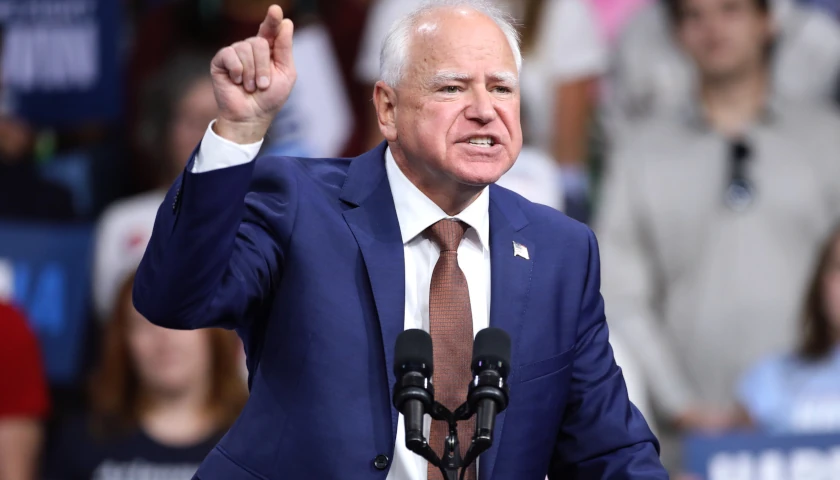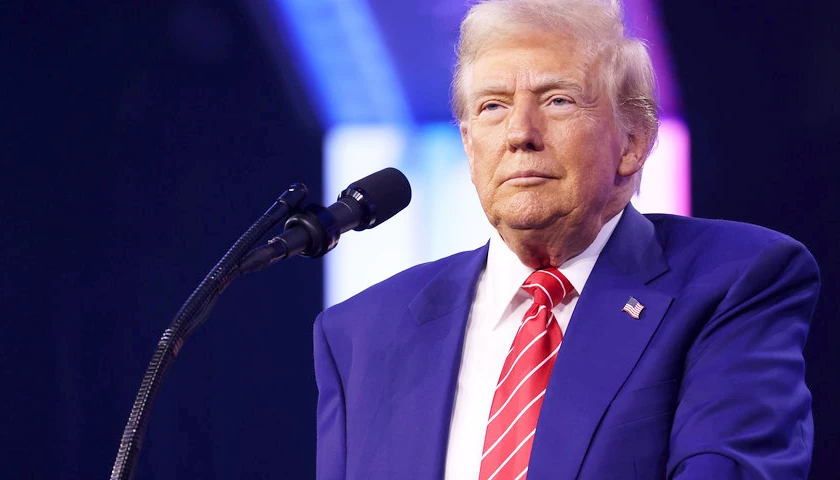by Sasha Gong and Bradley A. Thayer
Vice President Kamala Harris’ selection of Minnesota Governor Tim Walz as her vice presidential candidate seems to be a case of ideological birds of a feather flocking together. In the wake of the selection, Walz has received considerable criticism for his deception and dissembling regarding his military service. He merits equally great criticism for his ties to the Chinese Communist Party (CCP). Here are ten things that you did not know about Tim Walz and the People’s Republic of China (PRC).
First, Walz claimed that he was in the PRC during the June 4, 1989, Tiananmen Square Massacre. One of the authors interviewed him in 2014 when he made this statement, and he later repeated the same falsehood to the media. In reality, Walz did not enter China until September 1989, several months after the massacre. He entered China from Hong Kong as part of the WorldTeach program, which was sponsored by the Harvard Institute for International Development (HIID). HIID was known for being very pro-PRC and had trained many high-ranking Chinese officials. Later, HIID received many millions of dollars from the PRC.
Second, Walz claimed that he went to the PRC in 1989 because it was a rising country. However, China was not rising at that time. In fact, it was still extremely impoverished. The PRC’s rise occurred in the mid-1990s and especially after 2001 when it joined the World Trade Organization. After the Tiananmen Square Massacre, the Chinese government was desperate to recruit foreigners to come to the country. A few did to show support for the communist regime.
Third, the Chinese gave Walz the name “Tian Hua.” Walz misrepresented its meaning by saying it reflected his kindness. In reality, there is no such implication in Chinese. “Tian” means “field,” and “Hua” means “China.” The accurate translation of “Tian Hua” is “the fields of China.”
Fourth, in 2014, Walz explained why he went to the PRC during that critical time: “I felt it was more important than ever to go, to make sure that story was told, and to let the Chinese people know we were standing there, we were with them.” This was clearly a lie. After the massacre, the CCP launched a political crackdown that permeated the PRC and it remains a taboo issue. Hundreds of thousands of people were imprisoned, and no one could even mention the bloody event without risking arrest. Walz would not have been able to say a word to his students unless he wanted to get himself and them into serious trouble. In fact, according to Tim Walz himself, he fell in love with that China, that is, with the CCP’s form of tyrannical and illegitimate rule over the Chinese people.
Fifth, it is well known that after the Tiananmen Square Massacre, Chinese authorities—including the Ministry for State Security, the United Front, and other spy agencies—made concerted efforts to woo every foreigner in the PRC—especially Americans—by showering them with gifts and praise with the promise of more to come. Walz mentioned that he received so many gifts that he could not bring them all back to the U.S. At that time, China was a very poor country, with the average income of a Chinese worker being less than $20 per month. Moreover, it was somewhat dangerous for ordinary Chinese citizens to get too close to foreigners, particularly Americans. The Chinese government did not fully resume its open-door policy until 1992, long after Walz had left.
Sixth, Walz chose June 4 as his wedding day in 1994, which is extremely unusual. Even ordinary Chinese people would avoid selecting that bloody day for celebrations, as it is considered bad luck. The only reason someone might choose that day would be to show submission to the Chinese government by celebrating the crackdown. In Chinese symbolic tradition, this could be seen as a pledge of loyalty to the Chinese Communist Party (CCP).
Seventh, before his honeymoon, Walz launched a company called Educational Travel Adventures, which specialized in bringing American students to China. An article in the local Chinese media reported that he and his bride brought 50 students from America. The company continued to send students to China until 2003. It is important to note that operating a business in China requires all kinds of permits—both official and unofficial—from Chinese authorities at the local, provincial, and central levels. These permits were typically obtained either by paying bribes or by securing endorsements, whether tacit or open, from government officials. For foreigners, the MSS would certainly have been involved. That is as certain as the sun rising in the east.
Eighth, education is one of the most closely monitored activities in the PRC. To operate a business like his, Walz would have needed at least one local partner, if not several, and those partners would have been sanctioned by State Security. There is no way around it. However, Walz has never mentioned any such partnership. After carefully searching Chinese websites, we were not able to find any records, which is very unusual. Typically, local Chinese media would boast about large groups of foreign students visiting and about Americans who loved China. An educated guess would be that such records were completely wiped after Walz entered politics.
Ninth, it is likely that possible partners of Walz’s company in the United States would be local Confucius Institutes and CTG Travel, which is PRC-owned. In the PRC, they would be local or central offices of the United Front Department, the Department of Education, the Communist Youth League, and universities and colleges. These partners underscore strong ties to the CCP.
Tenth, there likely are many more shoes to drop when it comes to Walz’s relationship with the PRC and CCP. It was a longstanding relationship. It is a certainty that the CCP expects something in return for their investment in Walz. The American people deserve to know the who, what, where, why, and when of Walz’s relationship with the PRC. Walz would not be the first politician bought by the CCP, President Biden, his family, and associates have received many scores of millions of dollars from PRC entities. But Walz should be the last. His close ties to the CCP alone should disqualify him from office.
– – –
Sasha Gong, Ph.D. is a journalist, scholar, author, and Former Director of the Chinese Branch, Voice of America. Bradley A. Thayer, Ph.D., is the coauthor with James Fanell of Embracing Communist China: America’s Greatest Strategic Failure.
Photo “Tim Walz” by Gage Skidmore. CC BY-SA 2.0.





